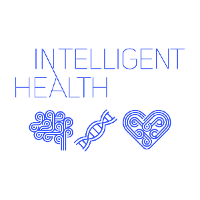There is much excitement in the world of AI and healthcare. From the promise of mass analysis and management of patient health records, to advanced predictive diagnosis methods, it’s easy to be optimistic about the future of healthcare when you consider the potential power of well-distributed, ethically robust and technically advanced AI systems. And with the AI market looking to grow at an annual rate of 40% through to 2021, reaching $6.6 billion that year as opposed to only $600 million in 2014, the business opportunity in field is attracting a new wave of entrepreneurs, clinicians and scientists adopting AI systems into the heart of their healthcare innovations.
Amongst the excitement, though, there is also a lot of overinflated hype about the role of AI
in healthcare. There are claims that robots will replace nurses in all hospitals, or that you’ll
only ever see a doctor via video link, or that surgery will no longer be done by hand, but by
sentient cyborgs and their mechanical fingers. Of course, there are efforts in all three of
these areas – hype with an element of truth within tends to spread most easily – but touting
innovations which are ‘cool’ but still far off, with many inherent problems beyond the
technical still to work out, reduces trust, inflates expectations, and ultimately reduces the
credibility of those currently working in the AI health field.
The excitement and hype tends to surround solutions which would make for a great sci-fi
film or ones which have a direct immediate impact on individuals. However, there is still
much to be done in getting the data, technology, underlying systems, laws, and skills ready
for AI to power healthcare across the board, meaning that some of the most powerful
applications are happening a little further away from our individual day-to-day lives. The
reality of AI in healthcare right now is that the biggest potential tends to lie in the
underlying systems of healthcare that the general public tends not to be exposed to.
One reality of the healthcare system often missed out in public engagement efforts, which
arguably has one of the biggest opportunities for change, is that of drug development.
We’ve all heard of Moore’s Law, the dramatic increase in processing power of computers
we’ve been witnessing over the last few decades and the resulting reduction of costs. But in
the pharmaceutical industry, there’s a not-so-desirable law, Eroom’s Law (cunningly,
‘Moore’ backwards), which is the observation that drug discovery is becoming more
expensive and much slower over time, despite technological progress. There are many
reasons for this phenomenon, and one is the human-intensive process of assessing each and
every option of chemical compounds being tested against the diseased cells, early in the
drug development process. Recursion Pharmaceuticals are instead using machine learning
methods to automate this early part of the drug development chain, meaning
pharmaceutical companies can find potential candidates faster, and thus move drugs
through their pipeline towards the patients at ever greater speeds.
In a similar fashion, AI is making waves in optimising the process of testing drugs. Clinical
trials are a vital, but expensive, part of the healthcare innovation process. And with these
costs rising, it’s crucial that trial design and outcome analysis make use of our modern
understanding, wrangling and powerful utilisation of data. Cambridge Consultants
developed a system focused on patient monitoring in clinical trials related to chronic stress,
and tapped into the power of AI to capture deeper insights throughout the trial process.
Chronic stress is at the root of many health problems, patient adherence and response to
drugs, and so it’s crucial to find ways of capturing insights around and measuring levels of
stress during trials. However, it is also multi-factorial and poorly characterised, and so it is
not easy to measure and analyse using traditional methods. By pairing scientific literature
reviews around the latest stress research with advanced machine learning methods, the
team built this system to pull chronic stress monitoring in clinical trials into the 21st century.
Even further from our individual experience of healthcare systems is the initial work
conducted in the science lab. It’s no secret that the brain is a tricky organ to decipher. With
over 100 billion neurons in the brain, trying to unpick the correlations between their
behaviour and the complex dynamics of our bodily systems which they determine, is no
mean feat. AI and machine learning methods are increasingly being wielded as a powerful
tool to better make sense of the complex patterns in the data we can extract in studying the
brain. When you consider that AI can essentially be used to analyse and find correlations
within huge amounts of data, the sheer volume of brain signals emitted by each one of us
every day seems like a good place to aim this technology at. But it’s not just about better
understanding how the brain functions normally. There are many neurological diseases still
evading the understanding, and thus treatment solutions, of brain researchers, and so there
is a huge opportunity in decoding the signals we gather from brain activity of those suffering
from some of the most complex and life-altering conditions. Neurologists are increasingly
becoming not just brain, but computer scientists too, in the quest to better understand
what is happening inside our heads.
Beyond the virtual doctor appointments and the plethora of AI-assistant apps claiming to be
able to diagnose ailments using chatbots, there are some unexpected real-world AIpowered efforts in the diagnosis space. The four leading causes of death in the US are a
result of mostly preventable chronic diseases: heart disease, cancer, chronic obstructive
pulmonary disease and stroke. And so the era of preventative health, and the push towards
early diagnosis as opposed to reactionary healthcare, is upon us. One of the biggest
challenges though, is knowing what to look for when diagnosing conditions. AI can play two
roles in tackling this problem. First, in giving individuals the power to self-check certain
conditions, thus lightening the burden on the healthcare system, such as with apps like
SkinVision which allow regular self-checks using a phone camera and AI analysis of the
image data captured. This is far more powerful than chatbots where people try to describe
ailments using words, as images can be analysed directly. Second, and again back to an
example which sits in the research space, AI can help find new biomarkers we haven’t yet
identified, by searching for patterns in health records at the population scale, which is the
novel approach Volv Global are taking in defining predictive biomarkers for rare diseases.
Seeing beyond the hype of the AI healthcare ecosystem isn’t about making it any less
interesting or exciting; on the contrary, spotting the opportunities at the ecosystem level, as
opposed to that of the individual, means we can start to work on system-wide problems.
Understanding where AI is already making waves, in places we most likely aren’t seeing in
practice right now, also means we can ensure our expectations aren’t overinflated next time
we see a doctor and therefore, aren’t disappointed by the incorrect perception of no real-
world movement in AI efforts. Just because there isn’t a robot to greet us at the hospital,
doesn’t mean AI isn’t already being embedded in healthcare.
If we’re to realise the potential of AI in healthcare, we must be able to differentiate
between current efforts and those still in development, as well as idealistic proposals and
those which make sense in the healthcare systems that exist. If we’re to funnel funding,
enthusiasm and industry support towards the most impactful work, AI solutions have to
make sense within the reality of healthcare today. In our quest to explore the world of AI in
healthcare, we must balance what we want with what we need, and focus our enthusiasm
to what actually moves the needle in modern healthcare systems, as opposed to things that
sound ‘cool’.
This article is written in the lead up to Intelligent Health 2019 (11th-12th September)
The world's leading AI in Medicine Summit
Intelligent Health is the only large-scale, global summit focused purely on AI in healthcare
gathering the world’s brightest AI health brains from pharmaceutical, biotech, MedTech,
health provisions, clinicians, tech companies, start-ups, investors and scientists every
September in Switzerland.
Get ready for two days packed full of first-hand case studies, lively debates and groundbreaking announcements to advance discussions on how AI can be used to prevent and solve
some of the world’s greatest healthcare problems, and improve the health of the human
race.
Intelligent Health AI
September 11th-12th 2019
Basel Congress Center, Switzerland
intelligenthealth.ai


